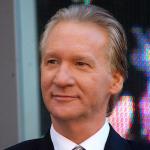At the end of my senior year in high school, our class opened a time capsule that we made in 2nd grade. Each of us had filled out a piece of paper asking us questions like, "What do you want to be when you grow up?" I wrote "Scientist."
science and politics
Americans don't agree on much these days. But one thing upon which we do agree is that something is deeply broken in our society.
A much-discussed "Science March," which germinated on the social news site Reddit and then experienced a meteoric rise on all social media in the past two weeks, now has an official date: April 22nd.
A potentially heartwarming development has occurred in recent days.
Science is one of the few institutions in America that has largely remained above the hyperpartisanship gripping our nation.
One of my extended family members is a former smoker. Nagging him to stop did little good. Warning him against its health dangers produced similarly poor results. He was addicted, and he appeared to like smoking, anyway.
The position of Science Czar is just one of thousands that President-Elect Trump must consider in the coming weeks. The incumbent, John Holdren, was a flawed choice.
Nate Silver, statistician and election forecaster, said on ABC News that election
Recently, Bill Maher instructed America on the importance of knowledge.
Unbeknownst to David Seidemann, a geology professor at Brooklyn College and scientific advisor to ACSH, he was placed on a hit list by the academic PC mafia.












